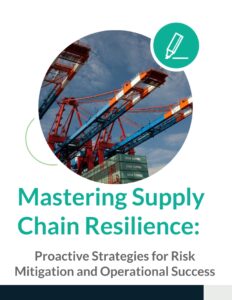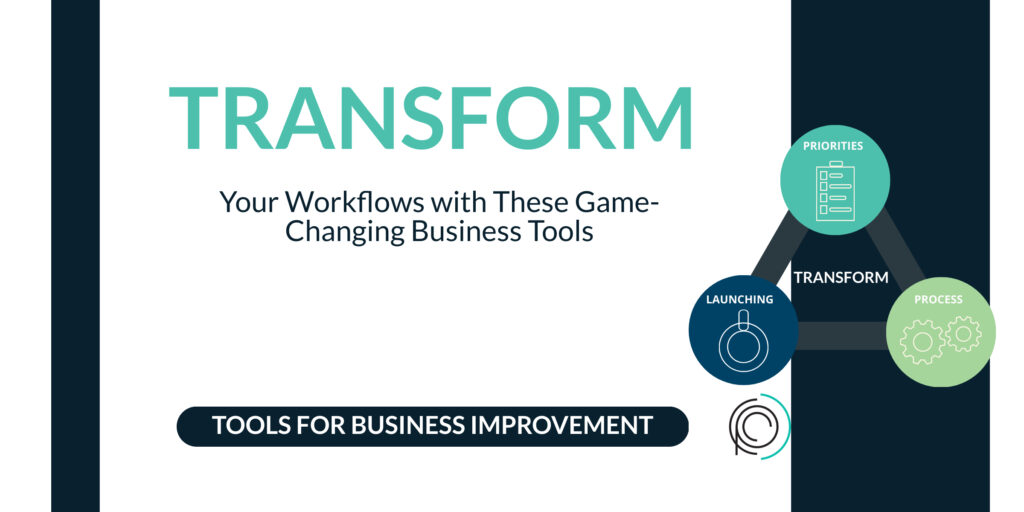Staying ahead often means leveraging the right tools to enhance efficiency and productivity. For corporations competing globally, this becomes a necessity rather than a luxury. This article aims to arm you with the knowledge of top tools that can significantly improve your business operations, offering insights into their functionalities and how they can be strategically implemented.
By the time you finish reading, you’ll have a comprehensive understanding of which tools could be game-changers for your organization, ready to optimize various facets of your operations from communication to project management. Whether you’re looking to streamline processes or drive growth, these tools are engineered to meet the needs of modern businesses.
The Power of Automation in Business Operations
Automation is not just a buzzword—it’s a pivotal component for operational success in corporate environments. With automation, businesses can handle repetitive tasks effortlessly, freeing up valuable time for employees to focus on more strategic initiatives.
Consider customer relationship management (CRM) tools like Salesforce and HubSpot. These platforms automate data entry and track customer interactions, offering valuable analytics that enhance personalized engagement. Likewise, workflow automation tools such as Creatio or Zapier seamlessly connect various applications, facilitating smooth data transfer and task management without the need for manual input.
For corporations, embracing automation can result in substantial cost savings. A study conducted by McKinsey & Company revealed that 60% of all occupations involve at least 30% of tasks that can be automated. By integrating automation tools, businesses can significantly reduce labor costs while enhancing overall productivity.
Enhancing Communication with Collaboration Tools
Effective communication is the backbone of any successful organization. With teams often spread across various geographical locations, collaboration tools become indispensable in ensuring seamless interaction and teamwork.
Platforms like Slack and Microsoft Teams have transformed corporate communication by integrating chat, video calls, and file sharing in one space. These tools not only facilitate real-time communication but also keep team members aligned with project goals through dedicated channels and task management features.
The benefits are clear. According to a report published in Forbes, McKinsey states collaboration tools can improve productivity by up to 25% in enterprises. When communication is timely and transparent, decision-making processes are accelerated, and potential bottlenecks are identified and addressed faster.
Project Management Made Easy
For corporations, managing multiple projects simultaneously requires robust organizational capabilities. Project management tools like Microsoft Project, Asana, and Trello offer structured platforms where tasks can be assigned, tracked, and completed efficiently.
These tools are designed to handle complex workflows, allowing managers to oversee projects from inception to completion. They provide visibility into each project’s status, ensuring that deadlines are met and resources are allocated optimally. Features like Gantt charts and Kanban boards in these tools offer visual representations of project timelines, enhancing clarity and coordination among team members.
The adoption of such tools is imperative for corporations aiming to maintain a competitive edge. Businesses that leverage effective project management solutions can reduce project costs by up to 30%.
Advanced Data Analytics for Strategic Decision Making
In the era of big data, the ability to analyze and interpret information is crucial for strategic decision-making. Advanced data analytics tools like Tableau and Power BI empower businesses to transform raw data into actionable insights.
These platforms offer interactive dashboards and robust reporting features that allow corporations to visualize trends, identify patterns, and make informed decisions. By harnessing the power of data, businesses can predict customer behavior, optimize marketing strategies, and identify new growth opportunities.
Organizations that embrace data-driven strategies are 23 times more likely to attract new customers and six times more likely to retain them. Investing in data analytics tools can yield significant returns and propel business growth.
Customer Relationship Management Systems
Building and maintaining strong customer relationships is vital for corporate success. Customer Relationship Management (CRM) systems like Folk, Creatio, and Zoho CRM offer comprehensive solutions to manage customer interactions and data throughout the customer lifecycle.
These tools integrate with various communication channels, tracking customer engagement and enabling personalized marketing efforts. By centralizing customer data, CRMs provide valuable insights into buying patterns, preferences, and feedback, allowing businesses to enhance customer satisfaction and loyalty.
The benefits of utilizing CRM systems are well-documented. According to a study by Nucleus Research, businesses saw an average return of $8.71 for every dollar spent on CRM technology. For corporations, these systems are essential for nurturing long-term customer relationships and driving revenue growth.
Streamlining Finance with Accounting Software
Managing finances efficiently is crucial for any corporation. Accounting software like QuickBooks and Xero simplifies financial processes, from invoicing and payroll to tax preparation and financial reporting.
These tools offer real-time financial insights, enabling businesses to make informed budgetary decisions. They automate routine tasks such as bill payments and bank reconciliation, reducing the risk of errors and saving valuable time for finance teams.
A survey by Intuit found that users of accounting software save more than 11 hours monthly in managing their finances. For corporations, this results in substantial cost savings and enhanced financial accuracy, making accounting software an invaluable asset.
Supply Chain Management Solutions
For manufacturing and distribution companies, effective supply chain management is essential. Solutions such as SAP Ariba and Oracle SCM Cloud provide comprehensive tools to streamline supply chain operations, enhancing efficiency from procurement to delivery.
These platforms provide real-time visibility into supply chain processes, enabling businesses to manage inventory, track shipments, and predict demand accurately. By reducing lead times and minimizing disruptions, supply chain management tools enhance operational efficiency and customer satisfaction.
The benefits of implementing these solutions are substantial. A study by Deloitte found that companies with optimized supply chains have 15% lower supply chain costs and 50% fewer inventory holdings compared to their peers.
Improve Marketing Effectiveness with Digital Tools
In a competitive marketplace, effective marketing is key to capturing and retaining customers. Digital marketing tools like Google Ads and MailerLite offer corporations the ability to reach targeted audiences with precision and creativity.
These platforms provide analytics-driven insights that enable businesses to craft impactful campaigns and measure their success. Automation features allow for personalized customer interactions, improving engagement and conversion rates.
According to a report by HubSpot, businesses using digital marketing tools see 2.8 times higher revenue growth expectancy. By leveraging these tools, corporations can enhance brand visibility and achieve significant marketing success.
Cybersecurity Solutions for Corporate Protection
With the rise of digital transformation, cybersecurity has become a top priority for corporations. Cybersecurity tools like Symantec and Sophos provide comprehensive protection against cyber threats, safeguarding sensitive data and intellectual property.
These solutions offer advanced features such as threat detection, firewall protection, and data encryption. By implementing robust cybersecurity measures, businesses can prevent data breaches and ensure compliance with industry regulations.
Investing in cybersecurity is a prudent move for corporations. A report by Cyber Magazine states that cybercrime will cost the global economy approximately $10.5 Trillion annually by 2025, which is up from $3 Trillion in 2015. By mitigating these risks, businesses can protect their assets and maintain customer trust.
Employee Engagement Platforms
Employee engagement is crucial for fostering a productive and motivated workforce. Platforms like Officevibe and 15Five provide tools for measuring employee satisfaction, tracking performance, and facilitating feedback.
These tools offer insights into employee morale and highlight areas for improvement, enabling businesses to implement strategies for enhancing workplace culture. Regular engagement surveys and performance reviews ensure employees feel valued and aligned with organizational goals.
A study by Gallup found that businesses with high employee engagement levels have 21% higher profitability. By prioritizing employee engagement, corporations can improve productivity and drive sustainable growth.
Cloud Computing for Scalability and Flexibility
Cloud computing has revolutionized the way corporations operate, offering scalability and flexibility for various business functions. Platforms like Amazon Web Services (AWS) and Microsoft Azure provide secure and reliable cloud solutions for data storage, application hosting, and resource management.
With cloud computing, businesses can scale their operations seamlessly, accessing resources on demand without the need for extensive infrastructure investments. This flexibility allows corporations to respond to market changes swiftly and efficiently.
According to a report by IDC, cloud computing is expected to account for 60-70% of all IT spending by 2024. By adopting cloud solutions, corporations can future-proof their operations and remain competitive in an increasingly digital world.
Artificial Intelligence for Intelligent Automation
Artificial intelligence (AI) is transforming business operations, enabling intelligent automation and data-driven decision-making. AI tools like IBM Watson and Google AI offer advanced capabilities for natural language processing, machine learning, and predictive analytics.
These tools empower businesses to automate complex processes, enhance customer experiences, and uncover hidden insights within their data. By leveraging AI, corporations can drive innovation and gain a competitive advantage.
A study by PwC found that AI has the potential to contribute $15.7 trillion to the global economy by 2030. For corporations, adopting AI technologies is not just an option—it’s a strategic imperative for achieving sustainable growth.
Conclusion
Incorporating the right tools into your business operations can have a profound impact on efficiency, productivity, and overall success. From automation and data analytics to marketing and cybersecurity, these tools offer tangible benefits that can transform the way your corporation operates.
By staying informed about the latest technological advancements and strategically implementing these tools, your business can remain agile and competitive in a rapidly evolving market. To explore further, consider reaching out to industry experts or attending relevant conferences and workshops to gain deeper insights.
Empower your corporation with the tools it needs to thrive and take the first step toward a more efficient and prosperous future. To get started, contact one of our experts today.







